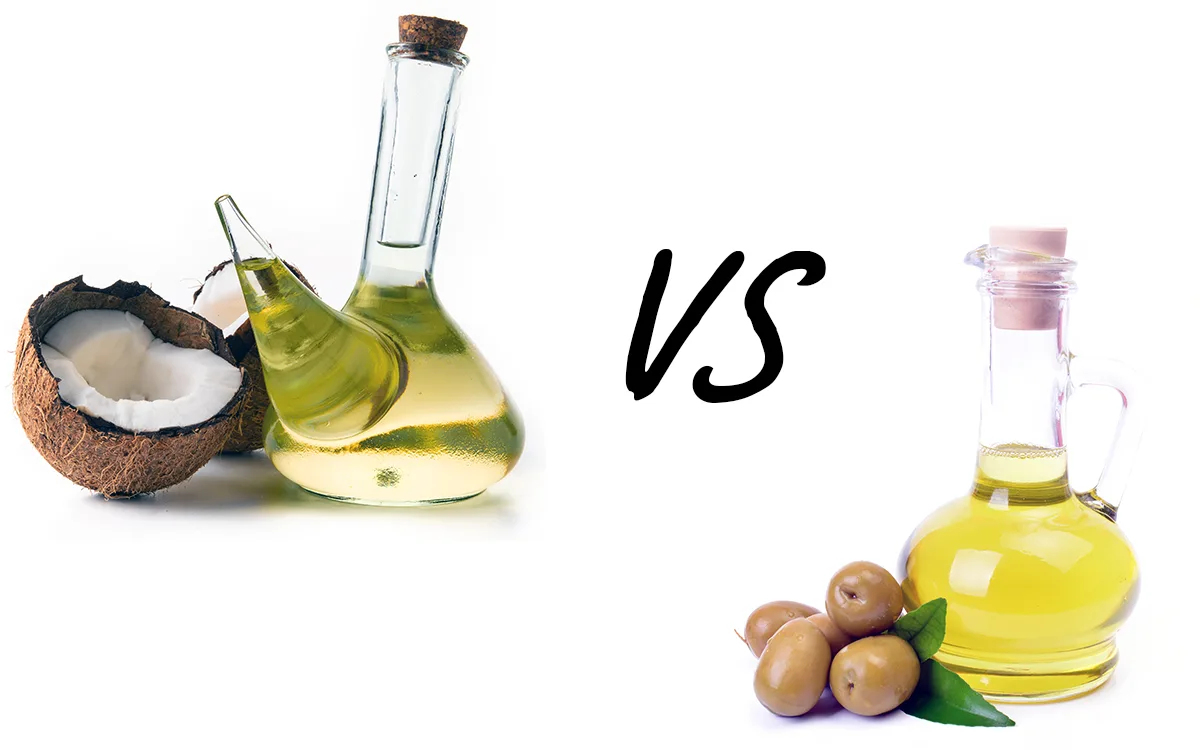When it comes to natural moisturizers, coconut oil and olive oil are two of the most talked-about options. Both have made their way from kitchen cabinets to bathroom shelves, promising to help restore softness and a healthy glow to the skin. But the real question is—which one is better for smoother skin?
The answer isn’t a simple yes or no. It depends a lot on your skin type, lifestyle, and how you plan to use the oil. In this blog, we’ll break down the key benefits of each oil, explore how they interact with different skin types, and help you decide which one might suit you better.
Understanding Your Skin Type First
Before choosing between coconut oil or olive oil, it’s important to understand your skin type. This plays a big role in how your skin reacts to natural oils.
- Dry Skin: Needs deep hydration and nourishment.
- Oily Skin: Requires something lightweight and non-greasy.
- Combination Skin: Needs balance—not too heavy, not too light.
- Acne-Prone Skin: Needs non-comedogenic options that won’t clog pores.
Now that we’ve covered the basics of skin types, let’s look at what each oil offers.
Olive Oil for Skin: What Makes It Special?
Olive oil is a staple in many Mediterranean beauty routines. It’s rich in vitamins like A, D, E, and K, and contains healthy fats that can help maintain your skin’s natural barrier.
Benefits of Olive Oil:
- Natural Moisturizer: Helps lock in moisture without feeling too greasy.
- Loaded with Antioxidants: May help support skin elasticity and smooth texture.
- Gentle on Most Skin Types: Especially good for dry or combination skin.
- Health-Aging Qualities: Regular use may help ease the appearance of fine lines over time.
Olive oil has a smooth, silky texture that makes it perfect for night-time skincare. Just a few drops can go a long way, especially when applied to slightly damp skin.
However, it’s slightly heavier than some oils and might not work well for acne-prone skin as it can clog pores if overused or if the skin doesn’t absorb it fully.
Benefits of Coconut Oil for Skin
Coconut oil is known for its tropical scent and creamy texture. It’s rich in medium-chain fatty acids, especially lauric acid, which gives it many of its skin-nourishing properties.
Why Coconut Oil is a Favorite:
- Deep Hydration: Great for dry skin and flakiness.
- Helps Maintain Skin Texture: The natural fats help the skin feel soft and smooth.
- Lauric Acid Power: Known to help balance skin’s moisture and comfort.
- Soothing Effect: Feels calming on rough or irritated patches.
This oil is thicker and more solid at room temperature, which makes it feel more like a balm. It’s excellent for elbows, knees, heels, or anywhere your skin feels rough or patchy.
However, for people with acne-prone skin, coconut oil may clog pores due to its thick consistency. It’s best to patch-test before using it on your face.
Natural Oils and Pore Concerns
One of the biggest concerns with using natural oils like olive oil or coconut oil is clogged pores. This can lead to breakouts or discomforts for some skin types.
Here’s a quick comparison:
|
Oil Type |
Comedogenic Rating (0–5) |
Best For |
|
Coconut Oil |
4 |
Dry, flaky skin |
|
Olive Oil |
2 |
Normal, dry skin |
A comedogenic rating tells you how likely an ingredient is to clog pores. The higher the number, the greater the chance of pore blockage. If your skin tends to break out easily, you may want to be cautious with coconut oil.
Olive Oil vs. Coconut Oil: Which is Better?
Now let’s get to the main question—which one is better for smooth skin? It really comes down to what your skin needs.
Choose Olive Oil If:
- You have dry or combination skin.
- You want a light, daily natural moisturizer.
- You have sensitive or delicate skin that gets irritated easily.
Choose Coconut Oil If:
- Your skin is very dry, flaky, or rough.
- You need something rich to apply overnight.
- You want to soothe and help restore skin texture.
- You’re using it on the body rather than the face.
For acne-prone skin, it’s often better to avoid heavy oils altogether or choose oils with lower comedogenic ratings, such as jojoba oil or rosehip oil.
Tips for Using Natural Oils for Smoother Skin
Regardless of which oil you choose, here are some simple tips to get the best out of them:
- Apply to Damp Skin: Oils seal in moisture better when your skin is slightly damp.
- Use a Few Drops: A little goes a long way—too much can lead to greasy skin or clogged pores.
- Patch Test First: Especially important for sensitive or acne-prone skin.
- Use Cold-Pressed Oils: These retain more nutrients and work better for skin care.
- Store Properly: Keep your oils in a cool, dark place to maintain freshness.
Final Thoughts
So, is coconut oil or olive oil better for smooth skin? The answer lies in your skin type and personal needs. Olive oil is gentle, light, and rich in skin-supporting nutrients—great for daily use. Coconut oil is richer and deeply hydrating—perfect for those dry, rough patches that need extra love.
Both are natural, easy to find, and affordable ways to help your skin feel smoother and more comfortable. Try them out, listen to your skin, and find what works best for you.
Checkout this Blog: Ingredient Spotlight: How Natural Ingredients Like Aloe Vera, Rosehip Oil, and Citrus Oils Can Elevate Your Skincare Routine

